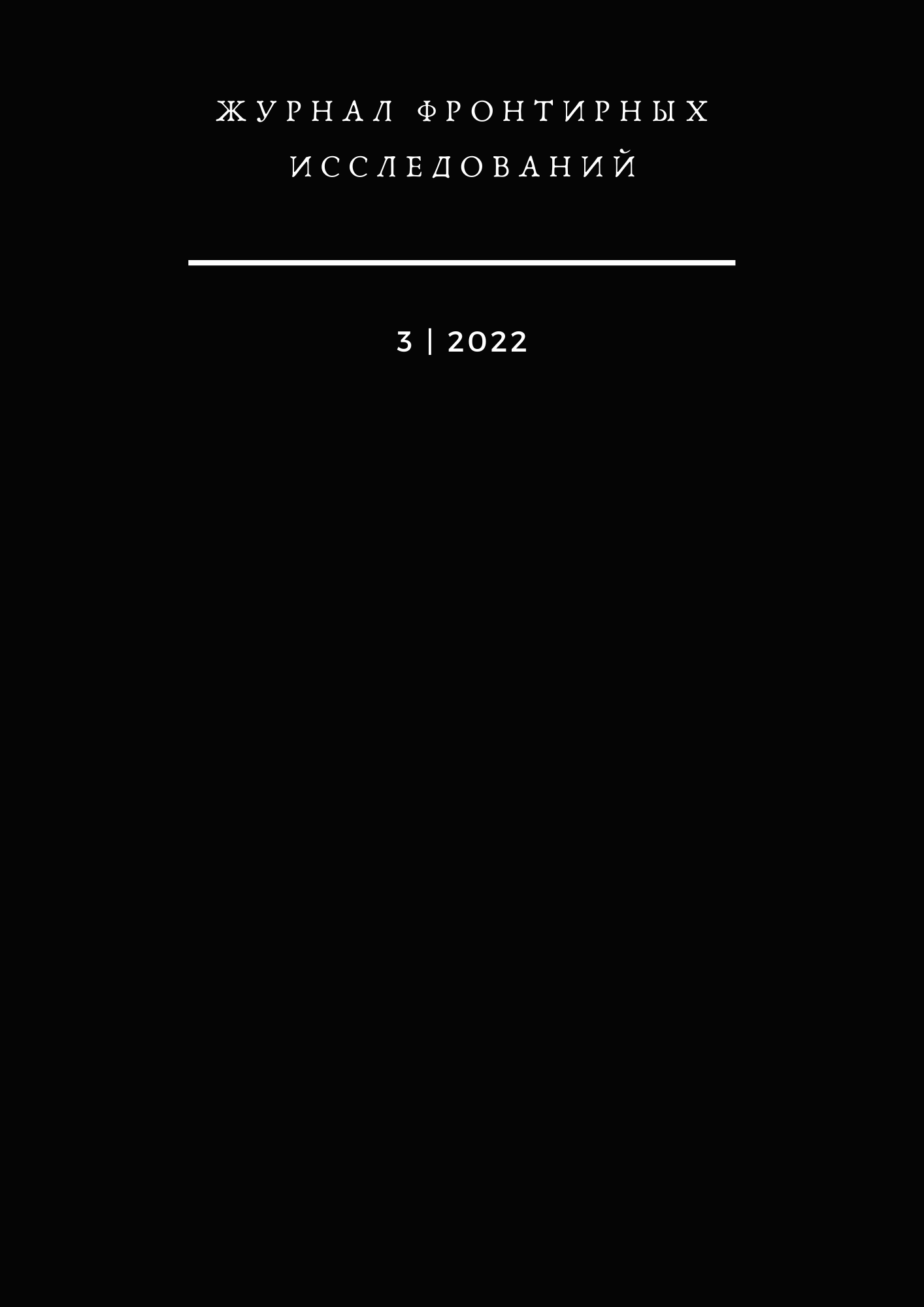Abstract
The study focuses on the transformation of the alimentary models of the imaginative Other. Based on the statistics of the Russian Internet queries, the authors identified a number of markers, determining the main alimentary models of the Other. They carried out a comparative analysis of the obtained in 2018-2019 (pre-Сovid-19) models with similar Post-Covid models for 2021-2022. The researchers' hypothesis is that the queries can reveal the attitude of the modern Russians to the Other, determine the criteria by which the images are formed and the factors, affecting their transformation.
The study showed that interest in the Other’s food is unstable. The number of queries constantly fluctuates. Both external factors (geopolitical, etc.) and contact with the objects of foreign mass culture can influence the growth of interests. At the same time, all markers (and stereotypes) can be conditionally divided into two groups: stable (fixed for several years), and situational, determined by external factors.
The long-term analysis allowed the authors to trace the increased relevance of a number of cannibalistic markers in the image of the Other, the main reason for which, according to the researchers, was the pandemic, and the subsequent decline of interest in them in 2022.
We should also mention the growing interest in video content (mukbang) In our view, this interest may be indicative of the observer's desire to transcend cultural boundaries and interact more closely with the Other. It is also particularly curious that this interest is directed toward the most alert models of the Other.
References
Aliev, R., & Yakushenkova, O. (2021). The Image of the Other in the (post-)Covid Period: Analysis of Russian-language Internet Queries. Galactica Media: Journal of Media Studies, 3(4), 163–190. https://doi.org/10.46539/gmd.v3i4.237 (In Russian).
Bruno, A. L., & Chung, S. (2017). Mŏkpang: Pay me and I’ll show you how much I can eat for your pleasure. Journal of Japanese and Korean Cinema, 9(2), 155–171. https://doi.org/10.1080/17564905.2017.1368150
Choe, H. (2019). Eating together multimodally: Collaborative eating in mukbang , a Korean livestream of eating. Language in Society, 48(2), 171–208. https://doi.org/10.1017/S0047404518001355
Donnar, G. (2017). ‘Food porn’ or intimate sociality: Committed celebrity and cultural performances of overeating in meokbang. Celebrity Studies, 8(1), 122–127. https://doi.org/10.1080/19392397.2016.1272857
Kennedy, H., Moss, G., Birchall, C., & Moshonas, S. (2015). Balancing the potential and problems of digital methods through action research: Methodological reflections. Information, Communication & Society, 18(2), 172–186. https://doi.org/10.1080/1369118X.2014.946434
Kircaburun, K., Harris, A., Calado, F., & Griffiths, M. D. (2021). The Psychology of Mukbang Watching: A Scoping Review of the Academic and Non-academic Literature. International Journal of Mental Health and Addiction, 19(4), 1190–1213. https://doi.org/10.1007/s11469-019-00211-0
Lai, K., Lee, Y. X., Chen, H., & Yu, R. (2017). Research on Web Search Behavior: How Online Query Data Inform Social Psychology. Cyberpsychology, Behavior, and Social Networking, 20(10), 596–602. https://doi.org/10.1089/cyber.2017.0261
McLuhan, H. M. (2007). Understanding Media: The Extensions of Man. Kuchkovo Pole. (In Russian).
Schwegler-Castañer, A. (2018). At the intersection of thinness and overconsumption: The ambivalence of munching, crunching, and slurping on camera. Feminist Media Studies, 18(4), 782–785. https://doi.org/10.1080/14680777.2018.1478694
Song, H. (2018). The Making of Microcelebrity: AfreecaTV and the Younger Generation in Neoliberal South Korea. Social Media + Society, 4(4), 205630511881490. https://doi.org/10.1177/2056305118814906
Spink, A., Wolfram, D., Jansen, M. B. J., & Saracevic, T. (2001). Searching the web: The public and their queries. Journal of the American Society for Information Science and Technology, 52(3), 226‑234. https://doi.org/10.1002/1097-4571(2000)9999:9999<::AID-ASI1591>3.0.CO;2-R
Stephens-Davidowitz, S. (2014). The cost of racial animus on a black candidate: Evidence using Google search data. Journal of Public Economics, 118, 26–40. https://doi.org/10.1016/j.jpubeco.2014.04.010
Tu, Y., & Fishbach, A. (2017). The Social Path to Satiation: Satisfying Desire Vicariously Via Other’S Consumption. ACR North American Advances, NA-45, 146–151.
Woo, S. (2018). Mukbang is Changing Digital Communications. Anthropology News, 59(6). https://doi.org/10.1111/AN.1048
Yakushenkov, S. N. (2012a). The Image of the Alien: from Deconstruction to Construction. Caspian Region: Politics, Economics, Culture, 3, 242–249. (In Russian).
Yakushenkov, S. N. (2012b). The Evolution of the Alien Image in European Vampire Discourse (We'll Put in a Word for the Poor Vampire). Caspian Region: Politics, Economics, Culture, 23, 263–269. (In Russian).
Zhou, V. (2021, May 7). It’s Now Illegal to Order Too Much Food or Share Binge-Eating Videos in China. Vice. https://www.vice.com/en/article/jg88kp/china-bans-food-waste-mukbang

This work is licensed under a Creative Commons Attribution 4.0 International License.

